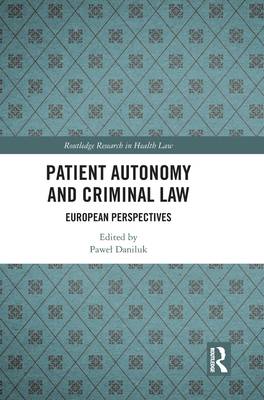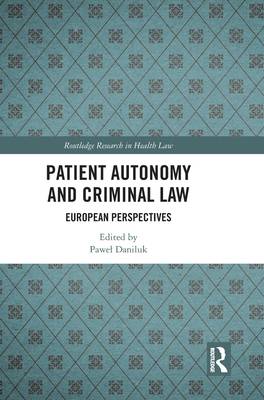
Bedankt voor het vertrouwen het afgelopen jaar! Om jou te bedanken bieden we GRATIS verzending (in België) aan op alles gedurende de hele maand januari.
- Afhalen na 1 uur in een winkel met voorraad
- In januari gratis thuislevering in België
- Ruim aanbod met 7 miljoen producten
Bedankt voor het vertrouwen het afgelopen jaar! Om jou te bedanken bieden we GRATIS verzending (in België) aan op alles gedurende de hele maand januari.
- Afhalen na 1 uur in een winkel met voorraad
- In januari gratis thuislevering in België
- Ruim aanbod met 7 miljoen producten
Zoeken
Patient Autonomy and Criminal Law
European Perspectives
€ 320,95
+ 641 punten
Omschrijving
This book shows how the legal systems of individual European countries protect patient autonomy. In particular, it explains the role of criminal law, that is, what criminal law protection of patient autonomy looks like on a European scale in both legal and social dimensions. Despite EU integration processes, the work illustrates that the legal orders of individual European countries are far from uniform in this area. The concept of patient autonomy here is generally in the context of the patient's freedom from unwanted medical activities: the so-called negative freedom. At the same time, in countries where there are no regulations clearly criminalising the performance of a therapeutic activity without the patient's consent, the so-called positive freedom is also discussed. The book will be a valuable reference work for academics, researchers and policy-makers working in Health Law, Medical Ethics, Applied Ethics and Criminal Law.
Specificaties
Betrokkenen
- Uitgeverij:
Inhoud
- Aantal bladzijden:
- 456
- Taal:
- Engels
- Reeks:
Eigenschappen
- Productcode (EAN):
- 9781032334851
- Verschijningsdatum:
- 21/10/2022
- Uitvoering:
- Hardcover
- Formaat:
- Genaaid
- Afmetingen:
- 170 mm x 244 mm
- Gewicht:
- 839 g

Alleen bij Standaard Boekhandel
+ 641 punten op je klantenkaart van Standaard Boekhandel
Beoordelingen
We publiceren alleen reviews die voldoen aan de voorwaarden voor reviews. Bekijk onze voorwaarden voor reviews.








